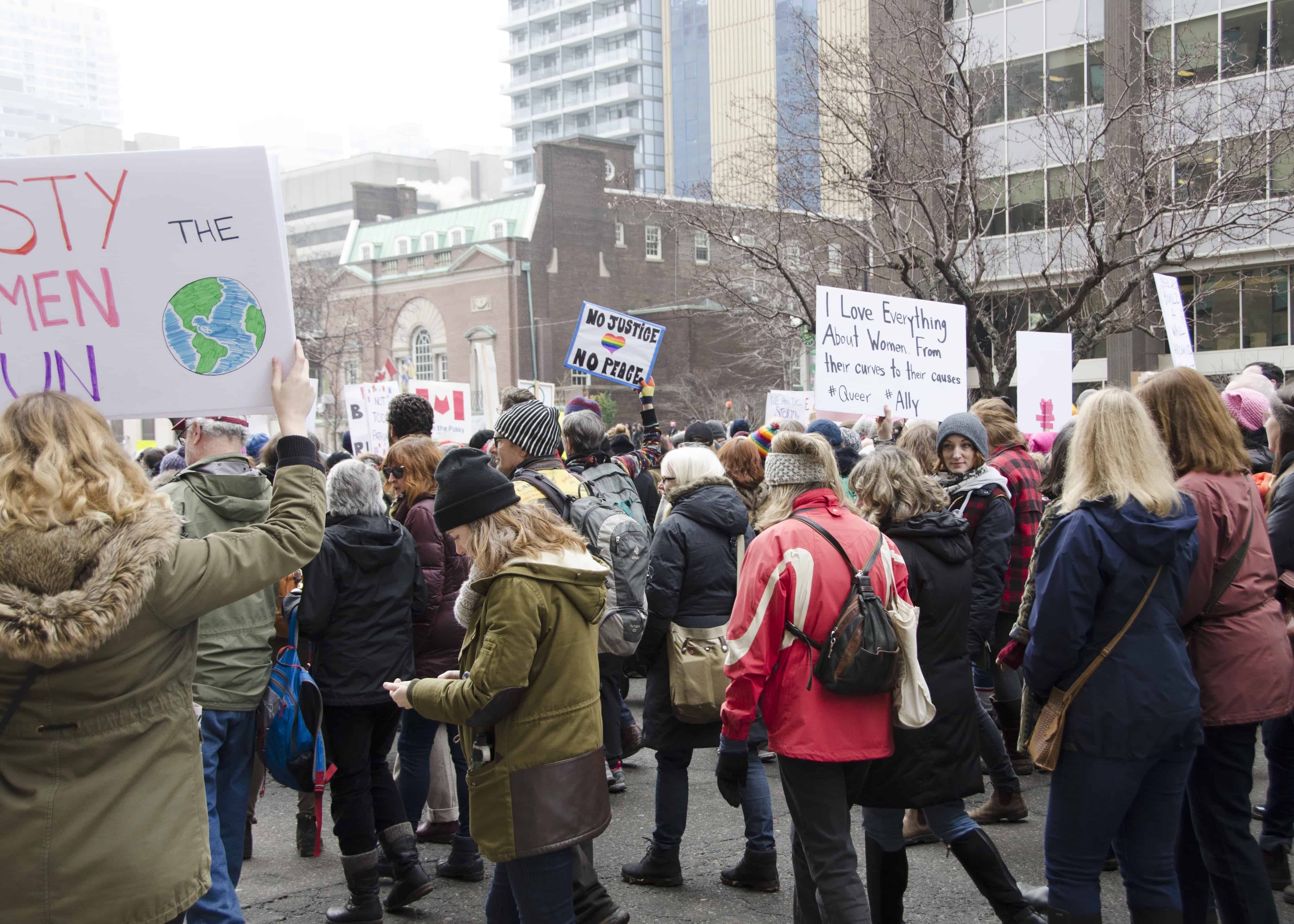Ten weeks after a particularly long and messy election season, Donald Trump has been sworn in as the forty-fifth President of the United States, with protests engulfing Washington, DC and other cities across the world.
At noon on Friday, Trump took the oath of office on the steps of the US Capitol and gave his inaugural address to the nation — his first official address as president.
Trump employed a number of talking points that he used during the election, but the “Make America Great Again” slogan came across with the most zeal, with Trump promising: “From this moment on, it’s going to be America First.”
With his firmly inward-looking rhetoric, the installation of Trump as president is sure to mark the beginning of a period of major change in how the influential state interacts with the world — including Canada.
Toronto joins the world in protest
With an approval rating between 34–40 per cent, Trump has the lowest of any incoming president in recent memory. Saturday was Trump’s first full day as president — and it was met with substantial protest.
The Washington Post reports that at least 1,200 buses sought permits in the city for January 21, which coincided with the Women’s March on Washington. ‘Sister Marches’ organized in solidarity with the march in Washington also took place in over 600 cities across the world, including Toronto.
Over 60,000 gathered at Queen’s Park before marching down University Avenue to the US Consulate and then proceeding to Toronto City Hall. The Varsity attended the march and spoke with numerous attendees to find out their reasons for marching.
A protestor named Diane told The Varsity “I’m marching because I’m in my fifties and I lived through the feminist movement, and I can see where we were and where we’ve come, and I want to make sure that we continue to move forward.”
Cathy, another protester, also expressed concerns over the situation, saying that she is “really, really concerned about what’s happening south of the border and the effect it could have here in Canada in empowering expressions of hatred and violence against women, and that that’s okay, because that’s the way he’s acted — and it’s not okay. And we’re going to stand up and say, ‘We will not let it happen here.’”
All ages were represented at the march. Liam, age 11, said, “I’m marching because Donald Trump’s not a nice person… and he does bad things.”
A number of faculty members also participated in the march. York University Professor Jody Berland stated, “I’m of the generation of women that spent many years getting healthcare rights, abortion rights, equal pay rights, and dignity rights for women, and we don’t want to lose those rights. And we are confident that the new generation will pick it up and run.”
Anna Korteweg, Assistant Professor of Sociology at UTM also weighed in: “I’m marching because I’m scared about what Trump will mean for the globe, for the world, for my children, for my students, and I don’t know yet how we can stop the tide Trump signifies, but I hope together we can figure out how to get back on a better path.”
What’s next for the US and Canada?
In an email to The Varsity, Professor Robert Bothwell of the Munk School of Global Affairs wrote that he felt the relationship between Canada and the United States would be maintained “with great difficulty” under a Trump presidency.
“The US is bitterly divided, with the result that party positions become very rigid. One party, the Democrats, is recognizable and comprehensible as a party. The other… well, not so much. This is not just my conclusion, but Norman Ornstein’s, the Canadian at the American Enterprise Institute and a major scholar on US politics,” noted Bothwell.
When asked how Trudeau might maintain Canadian/US relations under a Trump presidency, Bothwell stated, “The USA’s a big country, and there are always some Americans we can get along with, and some we can’t. The proportions differ, however.”
“If we are to believe what Trump’s entourage [says], we are in for some difficulties, especially over trade. I don’t think it would make much difference what Canadian party was in power: I don’t think the Trump team discriminates. Dealing with Trump the Twitterer will be [hard] enough; dealing with Republican politicians who worship Ayn Rand will be impossible,” explained Bromwell.


